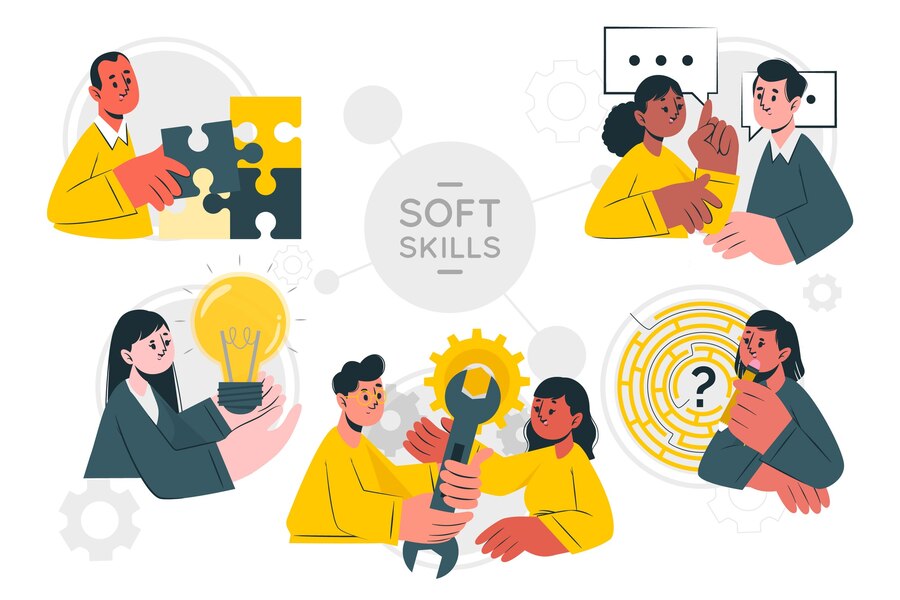The work market of today is dynamic and fast-paced. Employers are more interested in recruiting individuals with specialized talents than those with a degree alone in such a dynamic environment. Although having a degree is undoubtedly advantageous, it is no longer the sole criterion that determines your employment prospects or a measure of your skills. Let’s now investigate the value of skills in the workplace.
Skills Vs Degree

These days, employers favor talents that are immediately applicable to the work at hand. Skills provide what you need to do on the job, whereas a degree provides you with a general grasp of the topic. It would thus not be shocking if someone with the appropriate skill sets but no degree could start up right away, excel in their position, and contribute significantly to the business. Skills vs. degree demonstrates how the emphasis is moving toward useful skills that can be used right away.
The value of skills in the workplace is becoming more significant than a degree for another reason. As new techniques and technologies are developed, the labor market is always changing.
There are further causes as well. While talents relate to a particular aptitude or area of competence, degrees often include a wide range of information. Employers need individuals with specialized talents who can meet the precise requirements of their business, which a person with a degree or wide knowledge would not be able to do.
Degree
A degree is a valid qualification that attests to an applicant’s comprehension of the job specifications and ability to handle the duties of the position for which they are applying. There are benefits to having a degree:
A degree plays a significant role in a person’s personality development and gives them confidence in their approach and viewpoint.
a. A degree gains repute and social esteem. A person’s qualifications are frequently used as a foundation for evaluating their talents.
b. Of course, a degree brings prestige and wealth. The earning potential increases with the degree’s level of specialization.
Skill
An abstract concept that cannot be assessed on paper is a skill. It is a general phrase that indicates whether or not the person is capable of doing the duties at hand.
a. Not every degree holder has the abilities needed for the position.
b. A skill can help you advance in your position, while a degree can help you get a job.
c. Clients, managers, and superiors are drawn to skill, which also helps you rise in the ranks.
The Increasing Value of Skills in the Workplace
Comparing skills and degrees is important, but it’s also important to consider flexibility in a work environment that is changing quickly. The employment landscape has changed significantly in recent years. Companies are looking for applicants who can contribute to the position right away, thus they are giving skills a higher priority than degrees. These days, abilities are prioritized for the following reasons:
1. Rapid Technological Advancements
The need for certain technical and soft abilities has increased significantly due to the rapid advancement of technology. Because industries like software development, data science, and digital marketing are always evolving, companies frequently want candidates who can quickly pick up new skills rather than depending on degrees that might become obsolete.
2. Skills-Driven Industries
Many sectors today rely more on skills than on official degrees. For instance, creative fields such as web development, content writing, and graphic design sometimes place more value on demonstrated skills and portfolios than on a degree. Similar to this, real-world abilities like problem-solving, communication, and negotiating are frequently valued more highly than degrees in the fields of sales, leadership, and customer service.
3. Hands-On Experience
Project-based learning, apprenticeships, and internships are essential because employers value practical experience. Experienced skills, whether from volunteering, online learning, freelancing, or the workplace, show that a candidate can manage real-world difficulties, adjust to different work settings, and complete tasks quickly. This emphasizes the value of actual experience in forming a successful profession and puts talents vs. degrees front and center.
4. GIG Economy
With the rise of the gig economy, specific skills are even more important. These days, a lot of individuals work as consultants, contractors, or freelancers, and success in these positions usually depends more on experience and proven skills than on a formal degree. Businesses value skill-set-driven workers as more people adopt flexible work arrangements.
5. Shifting Opinions About Education
Learning has become more accessible because of the growing availability of online seminars, certificates, and courses. In order to acquire skills, more people are choosing non-traditional educational paths, which frequently avoid the requirement for a degree. These other educational options enable people to customize their education to meet their professional objectives, better preparing them for the unique demands of the labor market.
The Future
Since the nature of employment is changing quickly, academic degrees currently place a higher priority on having the proper abilities. People’s working methods and workplace culture have altered as a result of the current epidemic. In the workplace of the future, job skills are just as important as hard talents. Employers are looking for more than simply task-oriented and technical abilities. They are looking for innovative problem solvers, detail-oriented individuals, team players, effective time managers, and the capacity to handle complexity and ambiguity and that’s where the value of skills in the workplace comes into highlight.
Conclusion

While a degree is still a great tool for job seekers, you will need new skills to progress in your profession. Consequently, a significant portion of our careers will be devoted to developing the abilities necessary to thrive in the workplace, even though we spend a significant portion of our early years earning an academic degree. In the meantime, modern employment is being altered by the internet and new technology, and some of them could disappear in a few years.
Future employment will demand specialized talents that must be learned through several means. Since academic institutions are now failing to address the problem of skills shortages, alternative channels and approaches will be required to acquire skills. Although the first step on the ability ladder is a degree, which provides a certain amount of competence, we must add job-specific talents to become job-ready. Want to know more about the value of skills in the workplace, then feel free to avail EnrichMyCareer’s FREE 15-Minute Career Counseling Session.
Visit EnrichMyCareer’s for more information.
Frequently Asked Questions
1. Is skill more important than degree?
Because talents are more marketable, they are starting to take precedence over degrees in several areas. Skills are instantly applicable to practical abilities, whereas degrees offer a comprehensive comprehension of a topic.
2. Which skill is best for the next 10 years?
The most in-demand technical talents in today’s labor market are artificial intelligence (AI), data analytics, cybersecurity, cloud computing, and blockchain development. It is quite advantageous to be knowledgeable about new technologies and have programming language skills.
3. Which is better, skills or qualifications?
Finding a balance between assessing a candidate’s qualifications as one component of their fit for a position and other elements, such as their talents, is essential. The situation’s particular requirements and circumstances determine how important abilities are in comparison to credentials.
Nishant is an Internationally Certified Career Coach, a Career Counsellor, an Education Consultant, a Soft Skills Trainer, and an ardent advocate of youth empowerment through personalized guidance, mentoring, and developmental interventions. He is also an International Economic Development and Business Consultant. Over the years, he has helped many students of different age groups and working professionals in discovering their true selves, setting appropriate career goals, and walking the right career paths.
Nishant is a mechanical engineering alumnus from R.V. College of Engineering, Bangalore. He has been widely featured in top media and also delivered talks at Cambridge University-UK and IIT-Guwahati among others. He has also delivered workshops at many reputed schools and colleges on various careers and skills-related topics.



